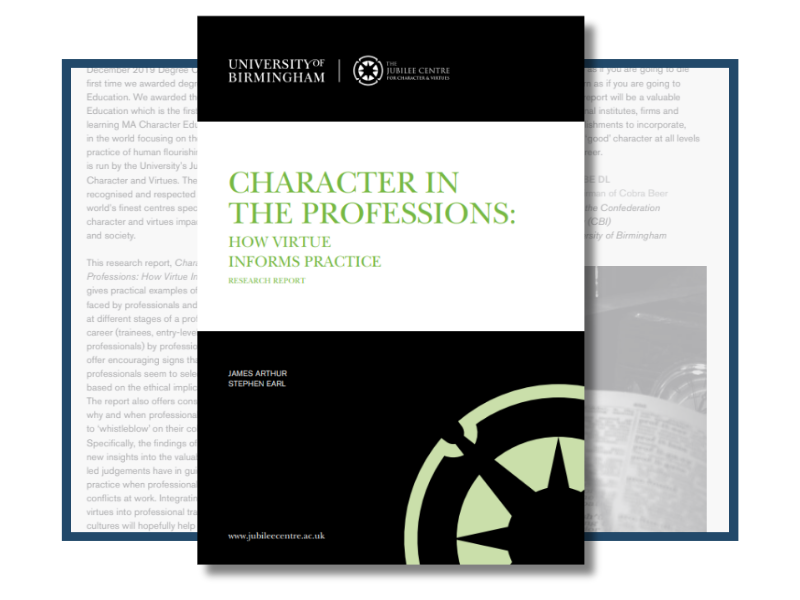Professional bodies and their members are held in high regard by the public and are expected to demonstrate service which is competent, knowledgeable, and ethical. The upholding of this public reputation, however, has seemingly led to cultures of excessive auditing and performance monitoring becoming central within contemporary professional governance. Professionals are obligated to adhere to codes of conduct that aim to ensure quality practices, with sanctions usually imposed for breaches in these standards. Moreover, discourse regarding professional ethics has typically been grounded in code- or rule-based distinctions at the expense of qualities of character. As a consequence, professionals may be in danger of becoming overly focussed on meeting performance metrics and prescribed rules rather than applying the independent judgement fundamental to ethical practice. Building on research regarding character and professional ethics by the Jubilee Centre for Character and Virtues, this report examines how professionals may use virtue-based and rule-based reasoning to guide their professional practice. The report also explores whether the dimensions of character to which professionals give importance differ between distinct domains and those at different career stages. Drawing on data gathered by the Jubilee Centre between 2012 and 2017, this report examines how 3,502 training, entry-level and established professionals from five distinct professions (law, medicine, teaching, business and nursing) responded to ethical dilemmas and differed in their self-reported character strengths

This report presents and compares key findings from two surveys: a survey with 1,947 13 -to 16-year-olds in England, and a survey with 1,515 parents of 13- to 17-year-olds across the United Kingdom (UK). In doing so, it explores adolescents’ and parents’ views on, and practices at the intersection of, character, virtue and wisdom in the digital age.
